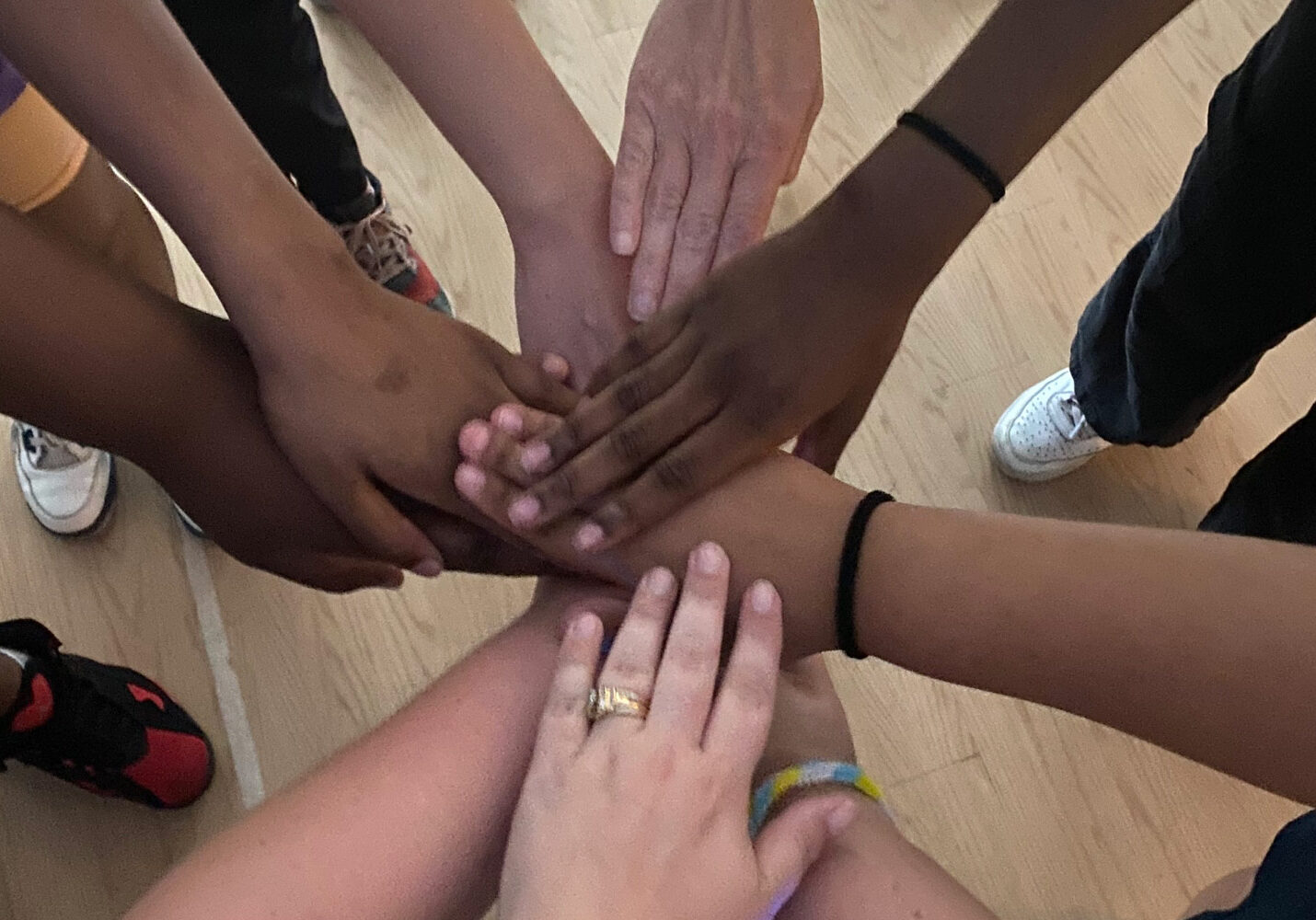The Power of Peers – How Group Therapy Helps Kids and Teens Heal
- October 3, 2024
- Resources

Lisa von Wahlde, MSW, LCSW
Director of Therapy
Often, when discussing psychotherapy, individual, couple, and family counseling come to mind. Although “group therapy” has been a recognized part of mental health treatment in the United States since the early 20th century, we know that sharing stories in a group has benefited many cultures around the world since the beginning of humankind. But why is group therapy so helpful, especially for children and teens who have experienced adversity?
Creates a sense of belonging/“I’m not alone”
Childhood and adolescence typically unfold in ways that can leave youth wondering, “Am I normal? Is this normal?” For kids who have experienced abuse or neglect early in life, the feeling of being different from everyone else is further amplified. They are more likely to be removed from the classroom or traditional summer camps because of their behaviors, which isolates them from their peers and reinforces the notion that “I’m different” or “I’m bad.” The groups and camps offered at FamilyForward provide a space where children feel seen for who they are beyond their behaviors, allowing them to connect with peers, establish friendships, and feel like they fit in.
Normalizes ways of coping
Often, the behaviors of kids who have experienced trauma are perceived negatively by family, friends, teachers, and community members. Labels such as “manipulative,” “attention-seeking,” “clingy,” and “oppositional” are viewed by the adults in their lives as inherently bad, when in fact these are usually maladaptive attempts to get their needs met. Groups and camps normalize the ways kids try to cope by approaching behaviors from a nonjudgmental and shame-free lens. Participants can see that others have similar struggles, and no one is shamed or blamed for that. The focus of the groups is on regulation and connection.
Provides peer support and accountability for enhancing or establishing new skills
FamilyForward groups and camps foster a “we’re all in it together” mindset that encourages children to take the brave step of trying on new skills. Being able to watch peers struggle and succeed at different times throughout the group experience normalizes the idea that change is hard but worth it. Group members cheer each other on when working through a difficult thought, feeling, or behavior, and they validate one another when pursuing a goal feels overwhelming or unreachable. With the guidance of therapist facilitators, the youth encourage each other to stretch and expand their skill sets, even when it feels a little scary. Of course, individual and family therapists do this as well, but we know it can have a greater impact on kids when support comes from their peers.
Finding joy/fun among stress and challenges
Academic, social, familial, and socioeconomic challenges often cause internal turmoil, stress, and anxiety in day-to-day functioning. The difficulties that children and teens impacted by trauma face often consume their focus as well as that of their families and teachers. Unfortunately, their challenges are frequently viewed by others and internalized as their identity or “just who they are.” World-renowned couples’ therapists and researchers Drs. John and Julie Gottman state that “what we focus on grows,” meaning that the more we focus on challenges and stressors, the more likely that emphasis will overshadow and negate any positive aspects that might be co-occurring. This negative focus over time impacts a person’s view of themselves and can lead to low self-esteem and a diminished sense of worth. Groups and camps provide an opportunity for kids to find joy in themselves and others, to have their strengths and talents acknowledged, and to recognize the powerful impact that creative play and fun can have on healing. Youth are so much more than their struggles. Group therapy celebrates the unique ways in which children and adolescents experience the world around them and explores how kids can use their abilities to navigate their stage of development and all that comes with it.
The cliché “It takes a village…” is especially true for children who are working through and healing from trauma. FamilyForward’s groups and camps provide the peer aspect of the “village,” a uniquely supportive piece in the patchwork quilt that is mental health treatment.
To inquire about FamilyForward’s group and camp offerings, visit familyforwardmo.org or reach out to our Group Coordinators at groups@familyforwardmo.org.
Resources
To learn more about the efficacy of Group Therapy, check out:
5 Reasons Group Therapy Is the Best Choice Struggling Teens ›
Observation of Interactions in Adolescent Group Therapy: A Mixed Methods Study ›
Art Therapy for Psychosocial Problems in Children and Adolescents ›
Recent Posts
Resources
Put Me In, Coach: Strategies to Prepare for Success with Extra-Curricular Activities
October 3, 2024
